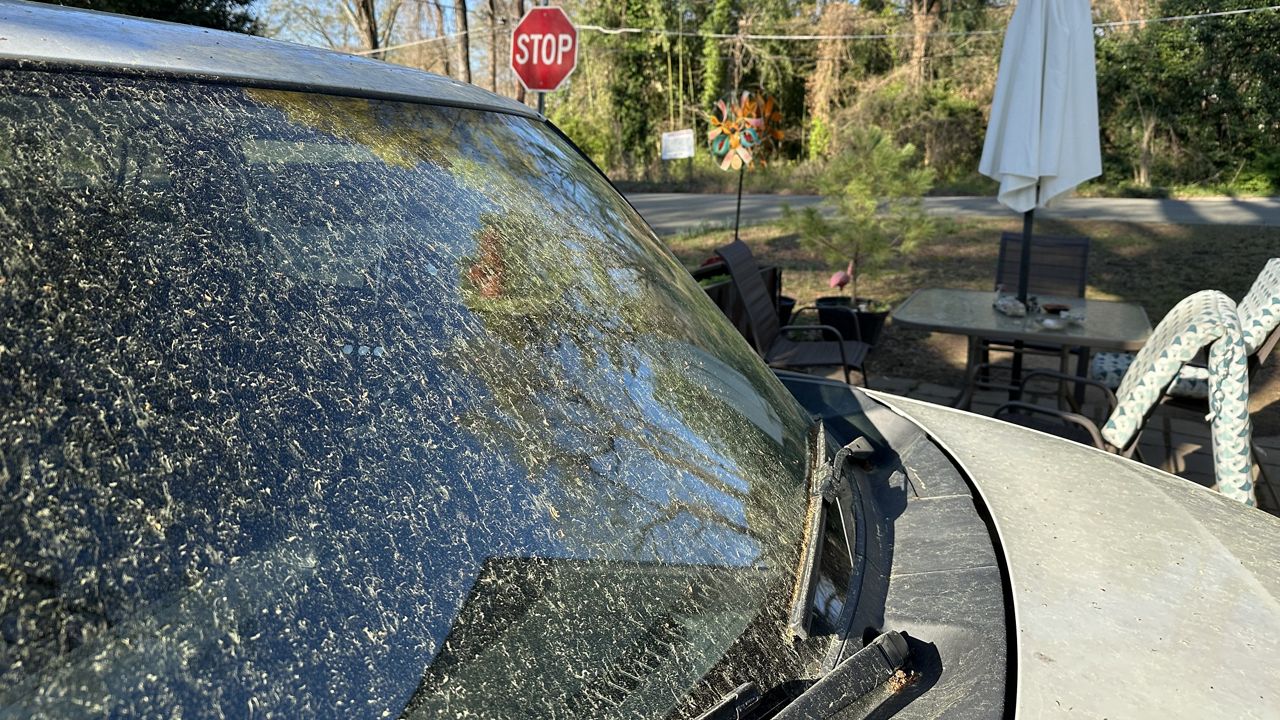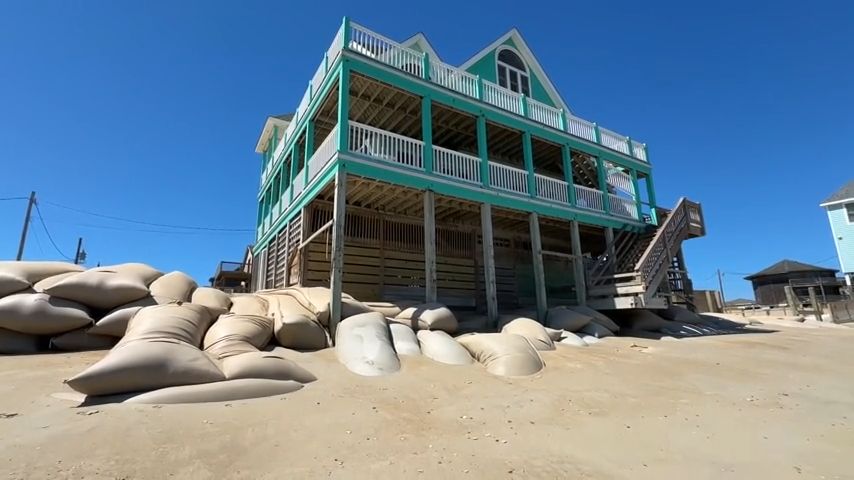ASHEVILLE, N.C. – A self-taught fashion designer in Asheville is trying to create a more sustainable future by only using secondhand garments for her designs.
The EPA estimates the average American throws away 80 pounds of clothing each year. The agency estimates nearly 17 million tons of textile waste was generated in 2017. Only about 15% was recycled, meaning more than 11 million tons of textile waste ended up in the trash.
This is all part of the reason Leanna Echeverri reuses clothes from thrift stores like Goodwill.
Echeverri is a notable fashion designer in Asheville, having created collections for Asheville Fashion Week, Festival in the Park and Color Me Goodwill. Color Me Goodwill is an annual upcycled fashion show featuring local designers and collections produced from Goodwill items, using people who have participated in a Goodwill community program as models. Echeverri won the fashion show’s first prize in 2018 and 2019.
Echeverri was born and raised in Miami, Florida. In 2000, she founded “Grateful Threads” out of her home, creating sustainable, original clothing out of eco-friendly and recycled materials. She said Miami didn’t respond well to it, so she moved to Asheville seven years ago.
She’s used pillow cases, sheets, doilies and pretty much anything she can find to repurpose into clothes. Echeverri said she prefers more natural fabrics, like cotton or linen.
But before her career in fashion, Echeverri had a background in interior design and was working for an architect.
“I wasn't being creative, and...I felt like that was just killing my spirit,” Echeverri said.
So she quit and made her hobby of repurposing clothes, known as “upcycling”, into her livelihood.
“I started making sustainable clothing out of hemp. It was my business, and I kind of gravitated into upcycled stuff,” Echeverri said. “I realized that the sourcing for it was endless.”
Not only that, Echeverri said it was more economical and she could be more creative with her work.
“I wasn't just reproducing a garment to sell,” Echeverri said. “I was making a one-of-a-kind garment that was for one person.”

Secondhand shopping was generational in her family. Her grandmother used to do it, as well as her mother.
“My grandmother was depression era and she raised three girls on her own later,” Echeverri said. “My mother was a single mom, so it was just the two of us and so there wasn't a lot of money.”
She recalled going with her mom to thrift stores and hating it. As a child, she wanted new clothing and what all the other kids were wearing. But as she got older, she started modifying her own clothing.
When Echeverri moved to Asheville, she partnered with Goodwill almost immediately. The organization shared a mission similar to hers.
“I don't want to contribute to all of the derogatory factors that go into manufacturing clothing,” Echeverri said.
According to the World Resources Institute, it takes more than 700 gallons of water to produce a new cotton T-shirt. Additionally, textile production uses significant amounts of chemicals, energy and other natural resources.
“This stuff makes up the mass majority of what ends up in landfills,” Echeverri said. “And so, if everyone can do a little bit.”
Goodwill says its shoppers, like Echeverri, help divert millions of pounds of goods from landfills each year.
“If you buy some used stuff, you know, you are contributing to the bigger picture,” Echeverri said.










